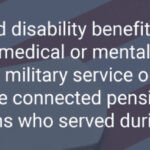Arabella “Belle” Mansfield shattered societal norms and legal barriers when she became the first woman admitted to the bar in the United States on June 15, 1869, in Mount Pleasant, Iowa. This groundbreaking achievement occurred despite prevailing attitudes that relegated women to domestic roles and actively resisted their entry into the male-dominated legal profession. Mansfield’s determination paved the way for generations of women lawyers, fundamentally altering the landscape of law in America.
Born Arabella Aurelia Babb in 1846 on an Iowa farm, Mansfield demonstrated exceptional academic abilities from a young age. She graduated as valedictorian from Iowa Wesleyan University in 1866, sharing the honors with her brother, Washington, who was salutatorian. Following graduation, Mansfield briefly taught as a professor of English, history, and political science at Simpson College. However, her path soon shifted towards law, influenced by her brother’s legal career and the encouragement of her husband, John Mansfield, a fellow Iowa Wesleyan graduate and professor. She apprenticed at her brother’s law firm, immersing herself in legal studies, a pursuit that culminated in her historic bar examination in 1869.
At the time, Iowa law stipulated that only “white men of good moral character” could be admitted to the bar. However, Judge Francis Springer, a known advocate for women’s rights, ingeniously interpreted existing legislation to allow Mansfield to take the exam. He leveraged a clause in the Iowa Code stating that masculine pronouns could be interpreted to include females. Based on this interpretation, Judge Springer authorized Mansfield’s bar examination and appointed two examiners. Mansfield not only passed but impressed the examiners with her profound legal knowledge. Their report lauded her “eminently satisfactory examination” and “thorough acquaintance with the elementary principles of law,” explicitly stating her achievement served as a “rebuke” to the notion that women were unfit for legal practice.
News of Mansfield’s accomplishment spread rapidly, capturing national attention. Newspapers across the country, as documented in the Library of Congress’s archives, reported on the “beauty of the Iowa Bar.” Some coverage adopted a lighthearted tone, with one paper playfully suggesting, “As she took possession of a Mansfield matrimonially, there is no reason why she should not occupy man’s field professionally.” However, not all reactions were celebratory. The New York Tribune, in an article titled “Petticoats at the Bar” that was widely republished, offered a mixed perspective. While acknowledging women’s potential for “office work” in law, the article expressed concern about women’s ambition to become barristers and questioned whether women could maintain their “charming” qualities while practicing law.
Despite some skepticism, Mansfield’s achievement spurred tangible change. The year following her admission, the Iowa state legislature amended the bar admission statute, removing the “white male” restriction and explicitly renaming the chapter “Women and Colored Persons May Be Attorneys at Law.” Although Belle Mansfield chose to dedicate her career to academia rather than legal practice, she remained a passionate advocate for women’s rights, particularly women’s suffrage. She co-founded the Iowa Woman Suffrage Society and chaired its convention in 1870, further cementing her legacy as a champion for equality.
Arabella “Belle” Mansfield’s story is not just a historical footnote; it is a powerful testament to the struggle for gender equality in the legal profession and beyond. As the First Female Lawyer in the U.S., she defied expectations, overcame legal hurdles, and paved the way for countless women to pursue their legal aspirations. Her legacy continues to inspire and reminds us of the ongoing importance of inclusivity and equal opportunity in all fields.

